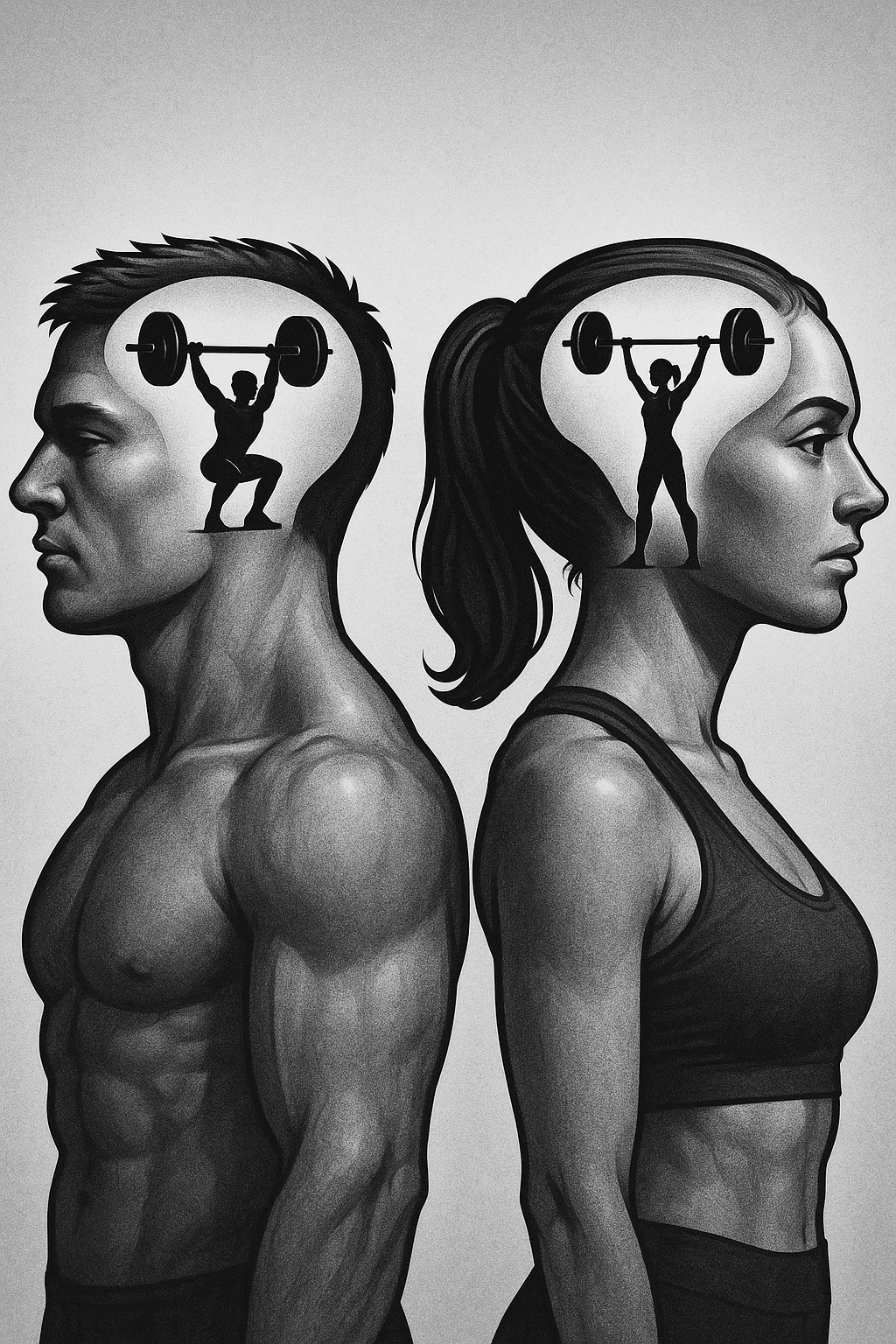Stop Labeling, Start Growing

Let’s be honest: being in shape sometimes feels like a social crime.
You walk into a room, radiating the discipline and energy you’ve worked hard to build, and instead of admiration… you’re met with quiet judgment, side-eyes, or that oh-so-familiar label:
“Ugh, they’re obsessed with themselves.”
But the truth is—if you know, you know.
If you’ve ever turned down a late-night binge because you had an early workout,
If you’ve packed your meals, logged your macros, or dragged yourself to the gym after a long, draining day,
You know this lifestyle isn’t about vanity. It’s about values.
It’s Not About You – It’s About the Mirror
This reaction you get from others? It’s not really about you. It’s about what you represent.
Psychologists call it downward social comparison—a defense mechanism where someone protects their fragile self-image by comparing themselves to others in a way that boosts their own worth. It’s the mind saying:
- “I’m not unhealthy. They’re just obsessed.”
- “I could look like that if I wanted to—I just have priorities.”
- “They’re probably insecure deep down.”
These narratives aren't rooted in truth. They're rooted in emotional self-preservation.
Then there’s projection—where people take their own insecurities and project them onto someone else.
They feel lazy, so they say you’re intense.
They feel undisciplined, so they call you obsessive.
They feel unseen, so they accuse you of showing off.
You become the mirror they didn’t ask for. And the truth is—most people aren’t ready to see themselves clearly.
Fitness Isn’t Just Physical – It’s a Higher Frequency
There are levels in life.
Not status. Not money.
But levels of self-awareness. Levels of responsibility. Levels of emotional regulation.
Getting fit is just the visible proof of invisible growth.
It means you’ve wrestled with temptation and chosen purpose.
It means you’ve overcome internal resistance.
It means you’ve learned to love yourself enough to say, “I deserve better than this comfort zone.”
When someone sees your progress, what they’re really seeing is:
- The confidence they haven’t built yet
- The consistency they haven’t developed yet
- The pride they haven’t earned yet
And rather than being inspired, they can feel... threatened.
Why?
Because your existence disrupts their excuses.
Your body says, “It’s possible.”
And if it’s possible… then why haven’t they done it?
That’s a hard question for the ego to swallow.
Real Talk: You’ve Probably Felt This
Ever shared your progress online and got fewer likes than a funny meme?
Ever had a friend make passive comments like “you probably don’t eat real food anymore” or “you’re getting too serious”?
Ever felt like you had to downplay your wins so others didn’t feel bad?
You’re not imagining it.
It’s real.
It’s called Tall Poppy Syndrome—a societal phenomenon where people cut down those who stand out. Because your growth makes them uncomfortable. Your elevation challenges their stagnation.
But here’s the truth: Your shine doesn’t dim anyone else’s light.
It just reveals who’s ready to level up—and who’s not.
The Irony? Most Fit People Are the Least Judgmental
Here’s what they don’t realize:
Most people who’ve been through a transformation—physically, emotionally, spiritually—don’t judge others for being at the start. They get it.
They’ve been there.
They know what it’s like to feel lost, tired, heavy, unsure.
That’s why the most disciplined people are often the most compassionate.
Because they didn’t inherit this—they earned it.
So What Do You Do?
- You keep rising.
- You keep choosing growth over comfort.
- You keep making the hard decisions that build real self-worth.
- You keep owning your space without apology.
Because being in shape isn’t about looking down on anyone.
It’s about proving what’s possible when you decide to stop waiting for permission and start honoring your potential.
What they call narcissism is often just the reflection of unprocessed shame.
You didn’t get here by accident. You designed this life.
And the very people who mock you today may one day come to you for advice—when they’re finally ready to rise too.
Until then?
Let your results do the talking.
Let your consistency speak for itself.
Let your glow be the invitation—not the apology.
They’ll catch up when they’re ready.